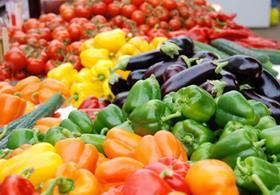
A 10 per cent increase in vegetable consumption could save the Australian government A$100m in health savings, according to a report by Deloitte Access Economics.
With 93 per cent of Australia’s failing to eat the recommended intake of vegetables each day, a slight increase would reap not only economical savings to Australia’s health system, but also boost returns to growers.
“If Australians ate just a handful more of broccoli or two extra carrots per week they would reduce their risk of some cancers and cardiovascular disease,” said John Lloyd, CEO of Horticulture Innovation Australia. “In economic terms, based on detailed modelling, all levels of government would also stand to benefit through an estimated A$100m in health expenditure savings per year combined.
“On top of this, a 10 per cent increase in national vegetable consumption would further support vegetable growers nationally with an estimated A$23m per year in additional profit.”
The report found that only 3.8 per cent of adult Australian males consumed adequate vegetables each day, compared to 10.2 per cent of females, meaning that if male consumption increased to that of females, the government’s health expenditure would reduce by A$58m.
Australia’s consumption of vegetables ranked 63rd in the world in 2011, and 20th out of 34 OECD countries. Tasmanians ranked highest for their vegetable consumption, though only 12 per cent of Tasmanians consumed the recommended daily intake, while Australian Capital Territorians consume the least amount of vegetables, with just 7.9 per cent meeting the daily intake.
While further research is needed to identify the most effective ways to increase the consumption of vegetables, the report found that successful interventions usually involved personalised or community programmes to target the social, environmental and economic barriers to consuming adequate vegetables.
Horticulture Innovation Australia commissioned the Deloitte report.



